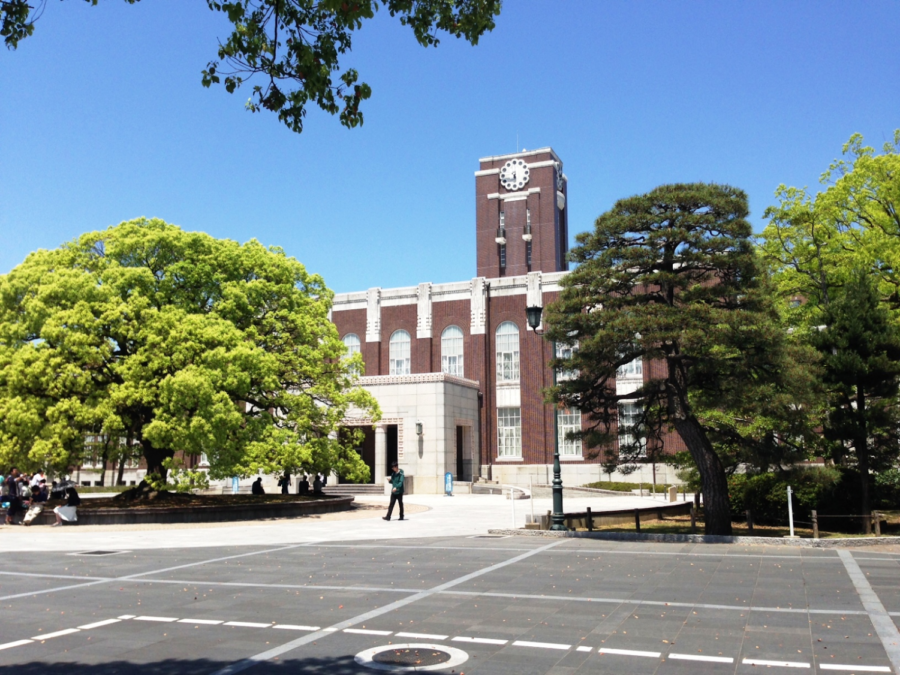Shifting the Japanese academic year will help Japan globalize
Photo: Creative Commons
Kyoto University is one of few universities in Japan that have English taught courses that start in September.
May 26, 2021
The debate on whether or not Japanese schools should start in September resurfaced last year during April with the pandemic causing closures of schools. In April 2020, after Japanese schools shut down due to the state of emergency in response to the coronavirus outbreak, 17 prefectural governors urged the government to consider starting the school year from September to make up for the time that was missed in school. This caused much debate with a strong opposition that resulted in a petition with over 5,000 signatures. Although the Ministry of Education, Culture, Sports, Science and Technology (MEXT) decided not to shift the academic year last May, there are meetings still being held to discuss the possibility of starting the academic year of some universities in September. It was reported this month that Tamagawa Gakuen, a K-12 school in Tokyo, is discussing plans with MEXT to shift their start of the academic year to September from 2023. This will be the first Japanese K-12 school to have its academic year start in September.
Though a school year that starts in September will help Japan globalize, challenges still need to be addressed. Shifting the academic year will be a lengthy process, with 38 laws that need to be changed. Another reason why many people are opposed to the idea of shifting the school year is because the tradition of holding graduation and entrance ceremonies under the sakura trees will be lost. The sakura has been a symbol for these celebrations for over a century so many people feel a sense of incompatibility with these ceremonies happening in the fall.
It is true that shifting the start of the academic year from April to September would cause changes that students would have to adapt to. However, the shift will help Japan globalize by making studying abroad more accessible to Japanese students and studying in Japan more accessible to international students. Because Japanese schools start in April, Japanese students who wish to study abroad have to wait five months before attending universities. International students have to wait 10 months after high school graduation before attending a Japanese university, which places them in a class with students a year younger than them. A few universities such as the University of Tokyo and Kyoto University have started providing courses that start in autumn. However, since everything else is scheduled around the academic year that starts in April, such as entrance exams and job hunting schedules, it could be inconvenient for students who attend schools that start in September.
According to MEXT, the most common reason why Japanese students are reluctant to study abroad is because they are afraid that they will lose career opportunities as a consequence of studying abroad. Because the time in which students graduate abroad is later than when students in Japan do, graduates in Japan are already working by the time these returning students start looking for jobs. By shifting the academic year to September, studying abroad will be more accessible to Japanese students as they will have equal opportunities to apply for jobs with their graduating class.
A major reason why people are unwilling to interact with people from other countries is because of the language barrier. Many people do not feel comfortable communicating in English, which can be seen from the TOEFL (Test of English as a Foreign Language), score rankings according to country. Out of 163 countries in the world, Japan is ranked 137th and out of 30 countries in Asia, Japan is ranked 28th with an average score of 69 out of 120. In a survey conducted by MEXT asking people in their 20s and 30s how willing they are to interact with people from other countries, 49.5% of the respondents said that they had no interest in interacting with people from other countries. They were not willing to work abroad, work in international companies with branches in Japan, or even have friends from other countries. Allowing more international students to study in Japan and more Japanese students to study abroad will allow people to gradually overcome the language and cultural barrier, changing the perception of other countries
By having a countrywide change in the academic schedule, not only will studying abroad be more accessible by allowing everyone to have equal opportunities after graduation, students will have more exposure to different cultures within Japan as the better-suited schedule will encourage more international students to study in Japan. Shifting the academic year to September will ultimately lead to Japan cultivating a more global mindset.























































